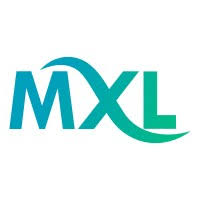
Joshellis1053
Uploaded on Nov 28, 2025
Environmental, Social, and Governance (ESG) principles are no longer abstract ideals reserved for corporate reports; they are the bedrock of modern business integrity. Yet, transforming vast, complex ESG policies—from carbon reporting to ethical labor standards—into actionable expertise for every employee is the defining challenge for leaders in Finance, Mining, and Pharma. The solution lies in the Power of Microlearning, a strategy that democratizes knowledge and embeds ethical conduct directly into the daily workflow. Microlearning, driven by intelligent Microlearning Platforms, ensures that ESG compliance shifts from a periodic hurdle to a continuous culture of integrity. 1. Translating Policy to Practice: The Precision of Content ESG often fails at the policy-to-practice stage due to information overload. Microlearning solves this with precision: every Microlearning Course is a focused "ethical snippet" designed to achieve a singular, actionable objective. The Breakdown: Microlearning breaks down the massive GRI or SASB frameworks into short, practical lessons. For a data entry specialist in Health care, the module isn't "Data Privacy Compliance," but "The one step required to anonymize patient data before sharing for research." Industry Example (Banking & Insurance): Instead of a lengthy webinar on sustainable investing, a relationship manager receives a 90-second module detailing how to correctly flag a "greenwashing" risk according to the firm’s new due diligence process. The training is tied directly to a transactional decision, making compliance immediate and practical. 2. Agility for a Dynamic Regulatory Landscape ESG regulations (and investor expectations) are constantly evolving. The speed at which training can be updated is critical to mitigating compliance risk. The Accelerator: The best Microlearning Platforms leverage the AI-powered Authoring Tool within their Microlearning Software. This revolutionary tool allows L&D teams to instantly analyze new global ESG reporting standards and rapidly draft the framework for focused micro-modules, ensuring that ethical policies are deployed almost instantly. Empowerment: Utilizing these advanced Microlearning Authoring Tools gives firms in Pharma and Finance the agility to stay ahead of the curve, transforming the compliance team from reactive trainers to proactive experts. 3. Contextual Support: Ethical Knowledge on Demand To truly make an employee an ESG expert, the knowledge must be available at the point of action. Mobile-First Adherence: The Microlearning Application is the core delivery system. A supervisor in Oil and Gas can quickly reference the ethical sourcing policy for a new vendor on their mobile device. A Retail manager can confirm sustainable waste segregation procedures at the store floor. The LMS Role: The centralized Microlearning LMS provides the necessary control to track mandatory training completion and audit every single adherence, providing definitive proof of continuous ESG commitment for reporting purposes. 4. Intelligence for Behavior Reinforcement Ethical behavior is a continuous practice, not a one-time test. The system must reinforce learning until it becomes an instinctive part of the job. Adaptive Expertise: The AI-Powered Learning Platform monitors employee interactions and performance within the Microlearning Platforms. If the system detects recurring errors in a compliance-related task, the AI automatically pushes a targeted retrieval snippet on the precise compliance rule. This adaptive reinforcement closes knowledge gaps before they become costly risks. By embedding knowledge into the daily workflow and leveraging intelligent Microlearning Tools to manage complexity, microlearning ensures that ESG compliance is not just reported, but genuinely practiced, turning every single employee into a knowledgeable, accountable ESG expert.

Comments